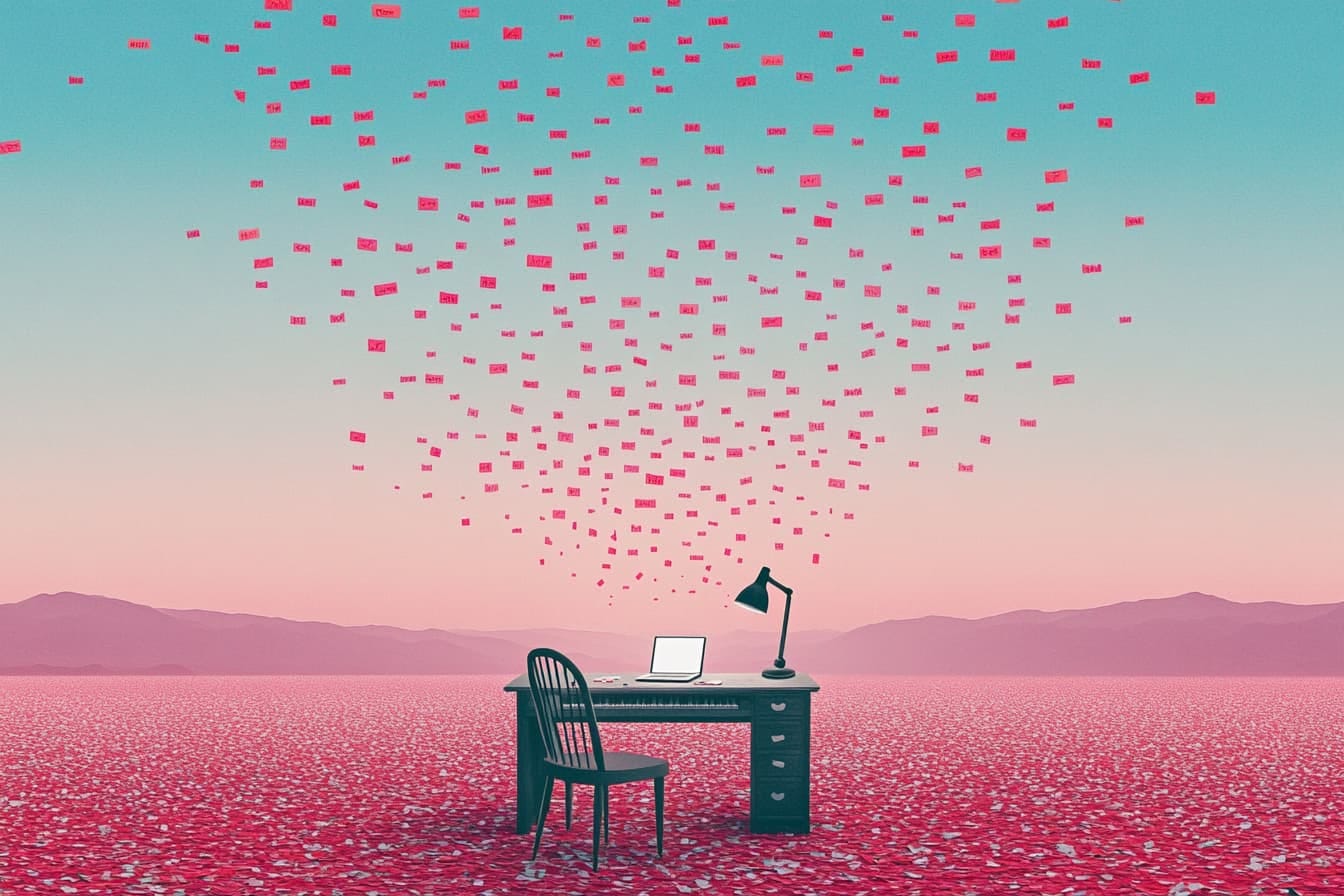In 2023, the Neiman Journalism Lab published an article entitled, Trust Good, Crap Bad. "Generative AI makes it easier than ever to crank out commoditized content," writes Chris Davis, vice president and head of newsroom strategy and transformation at the Star Tribune in Minneapolis. Generative AI allows us to produce more content, faster... but to what end?
Most of the general population occurs that AI-generated material is, indeed, crap. A study conducted by Forbes found that 70% of respondents report that GenAI directly impacts how they trust and consume material online.
Yet there's a disconnect between how people perceive others using generative AI versus how they use it themselves. Take LinkedIn, for example, which has become overrun with AI "slop" — both in posts and the comments. In a single post, I received three comments that were clearly generated by AI (the odd placement of hashtags and the 🚀 emoji were dead giveaways). A friend of mine, a history professor, told me that her students were dismayed to learn that professors could immediately tell when assignments were completed using generative AI.
Journalists, thought leaders, and people like me have been talking (venting) about how bad the AI-generated content is... yet these people seem to think "not my content."
I get the pressure we all feel to do more and create more. Want to rise to the top of the resume pile? You need a LinkedIn presence. Want to safeguard your career? You need a side hustle. It's a lot to juggle, and generative AI promises to make the work easier. There's tension between reach and authenticity and algorithms reward engagement, even if it's crappy engagement.
What we're receiving is noise, not signal. And I believe that in this AI-saturated world, there's a growing space for work that's thoughtful, original, and human. It's easier to stand out, not harder.
Human-first work will rise
On the podcast Creator Science, Jay Clouse took a question from a listener: is the market too saturated? The question was specifically about coaches/consultants, but Clouse's response rings true across the board:
There's saturation of content; there's saturation of people, but not quality. I think there's always space for really high-quality work and for someone to be distinctly themselves.
Clouse's sentiment extends beyond individuals. Take a look at corporations and corporate comms. Gen Z, in particular, wants to work with a company that aligns with its values and has a societal impact (and Gen Z will comprise 30% of the workforce by 2030).
Yet companies — even good companies — are out there with generic mission statements like "We want to create an experience that pleases our customers, a workplace that creates opportunities, and a business that achieves financial success." That doesn't say anything (generative AI could have written it, frankly). Robotic, inauthentic communications will impact companies as much as individuals.
People — whether it's customers, clients, or employees — reward substance. Long-term success happens when companies and individuals show up consistently and authentically.
On the TV show Mad Men, advertising executive Donald Draper said, "Success comes from standing out, not fitting in."
Opting out of the slop
Maybe it’s okay that the algorithms reward engagement and that AI-generated content has permeated, well, everything. It makes it easier to stand out by being real.
Political strategist Jessica Tarlov said on a podcast that the people resonating the most right now are the ones who "sound like a human being." While she was talking about a political context, "sound like a human being" seems like a bar that only a few people are willing to jump over. It raises the value of high-quality work. People can tell when something is done with care, versus generated to fill some type of arbitrary content quota. If you sound like you, no matter the type of communication, the right people will find you.
I considered replying to the three AI-generated comments on my LinkedIn post. I knew that replying would boost the post's visibility, because that's how the algorithm works. Maybe I could reply back and call the people out, since the comments said absolutely nothing and only contributed to the AI slop on the internet. But I didn't. I refused to participate in the performative engagement.
Isn't it interesting that in a world where so much is automated and AI-generated, "being human" is now a competitive advantage?
Most issues of this publication are free because I love sharing ideas and connecting with others about the future of work. If you want to support me as a writer, you can buy me a coffee.
If you love this newsletter and look forward to reading it every week, please consider forwarding it to a friend or becoming a subscriber.
Have a work story you’d like to share? Please reach out using this form. I can retell your story while protecting your identity, share a guest post, or conduct an interview.





Great piece, Anna! And I hope you’re right 🙂